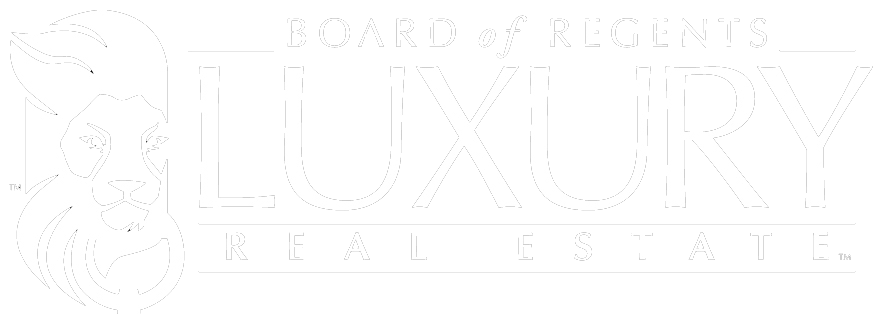With so many options in the market, you need to narrow down the search by determining your wants and needs. Decide how large or small your first home should be, and what kind of features it must possess. Be specific when it comes to the number of rooms, storage space, and even square footage.
New Legislative Changes Impacting Sports Betting in the USA
As the landscape of sports betting in the United States continues to evolve, new legislative changes are shaping the future of this rapidly growing industry. With recent developments impacting the way Americans engage with sports betting, it is crucial to understand the implications of these changes on both consumers and businesses. From state-by-state regulations to federal considerations, the legal framework surrounding sports betting is undergoing a significant transformation.
In this article, we delve into the latest legislative shifts that are influencing the sports betting scene in the USA. From examining the impact of key laws on the accessibility and integrity of sports betting to exploring the opportunities and challenges faced by operators in this dynamic environment, we uncover the multifaceted aspects of this evolving sector. Join us as we navigate through the complexities of the new regulatory landscape and discover what these legislative changes mean for the future of sports betting in America.
Overview of Recent Legislative Updates in Sports Betting
In recent years, the landscape of sports betting in the United States has been significantly impacted by new legislative changes. One of the most notable developments was the overturning of the Professional and Amateur Sports Protection Act (PASPA) in 2018 by the Supreme Court. This decision effectively allowed states to individually legalize and regulate sports betting, leading to a rapid expansion of the industry across the country.
As a result of the legalization of sports betting in various states, there has been a surge in revenue generated from this sector. This has not only provided states with additional sources of income but has also created new opportunities for businesses and investors in the sports betting market. The increased competition among operators has led to innovations in technology and marketing strategies to attract and retain customers.
Furthermore, the introduction of online and mobile sports betting platforms has revolutionized the way people engage with sports wagering. This shift towards digital platforms has made betting more accessible and convenient for consumers, leading to a significant increase in the overall volume of bets placed. This trend has also prompted traditional sportsbooks to adapt their offerings to remain competitive in the evolving market.
Looking ahead, the continued evolution of sports betting regulations in the USA is expected to shape the industry further. With more states considering legalization and potential federal regulations being discussed, the landscape of sports betting is likely to continue evolving, presenting both challenges and opportunities for stakeholders in the market.
Implications of the Legalization of Sports Betting in Various States
Recent legislative changes in the USA have significantly impacted the landscape of sports betting, particularly in the realm of online sports betting. One of the key changes involves the legalization of online sports betting in several states, allowing individuals to place bets on sports events through online platforms. This shift has not only expanded the accessibility of sports betting but has also opened up new revenue streams for both the industry and the government.
Moreover, these legislative changes have prompted a wave of partnerships between sports betting companies and major sports leagues in the USA. This collaboration has led to the integration of online sports betting into the fan experience, with features such as in-game betting and exclusive promotions becoming more prevalent. As a result, the sports betting industry is witnessing a significant transformation, with technology playing a crucial role in shaping the future of online sports betting in the United States.
Regulatory Challenges and Opportunities in the Evolving Landscape
Recent legislative changes in the USA have significantly impacted the landscape of sports betting across the nation. One of the most notable changes is the legalization of sports betting in several states, following the Supreme Court’s decision to overturn the Professional and Amateur Sports Protection Act (PASPA) in 2018. This decision has opened up a new era for sports betting, allowing individual states to regulate and authorize sports betting within their borders.
Another key legislative change affecting sports betting in the USA is the introduction of online and mobile sports betting platforms. Many states have embraced this trend, allowing bettors to place wagers conveniently from their smartphones or computers. This shift has not only increased accessibility to sports betting but has also driven significant revenue for states through licensing fees and taxes on betting revenue.
Furthermore, the evolving regulatory framework surrounding sports betting has led to partnerships between professional sports leagues and betting operators. These collaborations aim to enhance the integrity of sports competitions, prevent match-fixing, and ensure responsible betting practices. As the legal landscape continues to evolve, sports betting in the USA is poised for further growth and innovation, reshaping the way fans engage with their favorite sports.
Impact on Sports Industry Stakeholders and Market Dynamics
Recent legislative changes in the USA have had a significant impact on the sports betting industry. One of the most notable changes is the legalization of sports betting in several states, following the Supreme Court’s decision to strike down the Professional and Amateur Sports Protection Act (PASPA) in 2018. This decision opened up opportunities for individual states to regulate and legalize sports betting within their borders, leading to a surge in both online and land-based sportsbooks.
Moreover, the introduction of new regulations and oversight mechanisms has aimed to ensure consumer protection and fair play in the sports betting market. States that have legalized sports betting have implemented measures such as age verification requirements, responsible gambling initiatives, and strict licensing procedures for operators. These measures are designed to promote transparency and integrity in the industry while safeguarding consumers from potential harm associated with problem gambling.
As a result of these legislative changes, the sports betting landscape in the USA has experienced rapid growth and evolution. With an increasing number of states embracing legal sports betting, industry stakeholders are adapting to a more regulated environment that offers both challenges and opportunities. The changing regulatory framework is reshaping the way sports betting is conducted in the country, paving the way for a more transparent and competitive market for both operators and consumers.
Future Trends and Predictions in the US Sports Betting Market
Recent legislative changes in the United States have significantly impacted the landscape of sports betting across the country. One of the most notable changes is the legalization of sports betting in several states, following the Supreme Court’s decision to strike down the federal ban on sports wagering in 2018. This decision has opened up a new market for sports betting operators and has provided states with the opportunity to regulate and tax this industry.
Furthermore, these legislative changes have also paved the way for partnerships between sports leagues and betting companies, leading to increased collaboration and integration of sports betting within the realm of professional sports. The rise of online sports betting platforms has made it more convenient for enthusiasts to place bets on their favorite teams and events, contributing to the growth of the industry and changing the way sports fans engage with games.
As the landscape of sports betting in the USA continues to evolve with new legislative changes, it is evident that the industry is poised for significant growth and development. With states increasingly legalizing and regulating sports betting, opportunities for both operators and consumers are expanding. The recent changes indicate a shifting attitude towards sports betting, opening doors for innovation and increased engagement. It is crucial for stakeholders to stay informed and adapt to these changes to navigate the dynamic and exciting world of sports betting in the United States.
Location is another primary consideration – how far are you willing to drive to work or school? What kind of community would you like to live in?
Virginia offers fantastic homes at all price points. Whether you’re searching for a starter home or your first luxury property, you’re bound to find something that suits your tastes.
Work with a Realtor who can show you all your options in the market. Only a local expert can give you a bird’s eye view of cities like Newport News, Williamsburg, and Newport News. Let them walk you through VA’s finest neighborhoods.
A Realtor can also present you with listings that meet your criteria. They can help you with the search, scouring their professional networks for properties that you might not have access to otherwise.
When deciding which neighborhood to buy in, it helps to visit at various times of the day and week. This will give you a clear idea of how much traffic and activity to expect once you’re settled. Drop by during rush hour to see what your daily trip to the office might be like.
Your Realtor will inform you of any open houses that scheduled in the area of your choice. Decide which ones you want to prioritize and come up with an itinerary that will help you make the most of your time. If you’re in the market for a luxury home, the agent will request a private home viewing with the seller.
Once you’ve found the right home, you’ll have to put in an offer. As a rule, your first offer should be your strongest offer. It’s not just about offering to pay at or above the asking price. You can sweeten the deal by promising to close the deal fast, or by removing certain contingencies.
Don’t skip the home inspection. It’s the only way to know if there are underlying problems with the home. A professional inspector will determine if you are truly getting what you’re paying for. Being aware of any issues with the home will help you make informed decisions.
If you’re buying a luxury property, you might need to have separate inspections made for private amenities like swimming pools and tennis courts.
If the deal goes through, the only thing that’s left to do is move into your new home. A reliable moving company can help you transport your belongings. Your Realtor can help you find one that serves the area.










